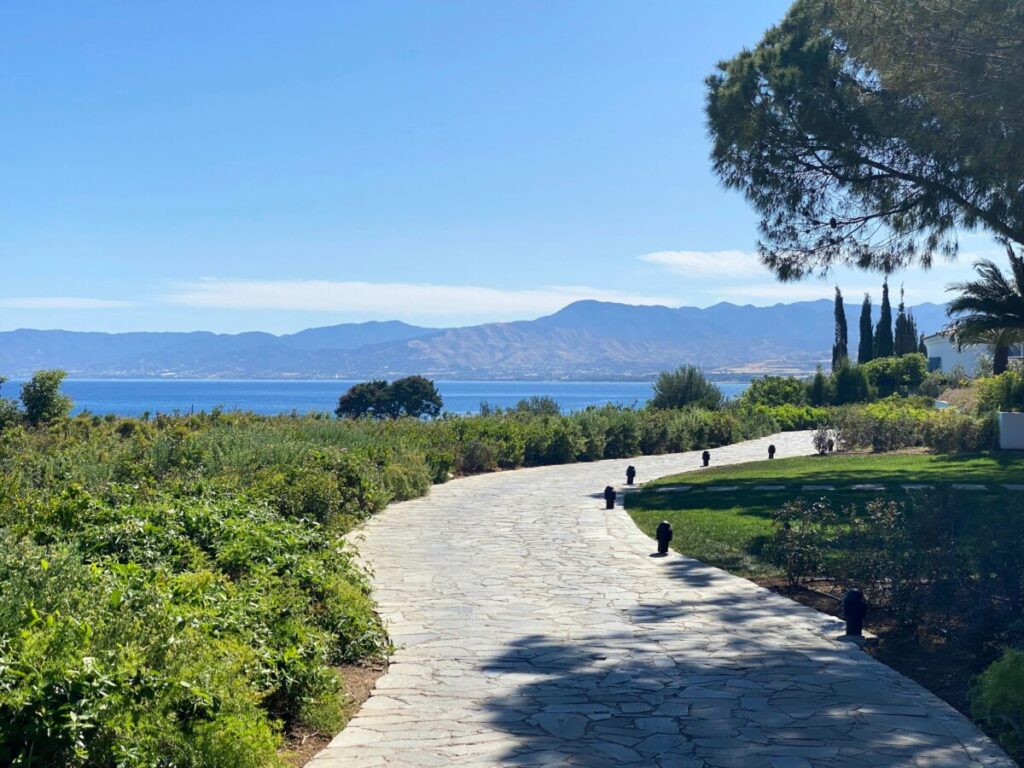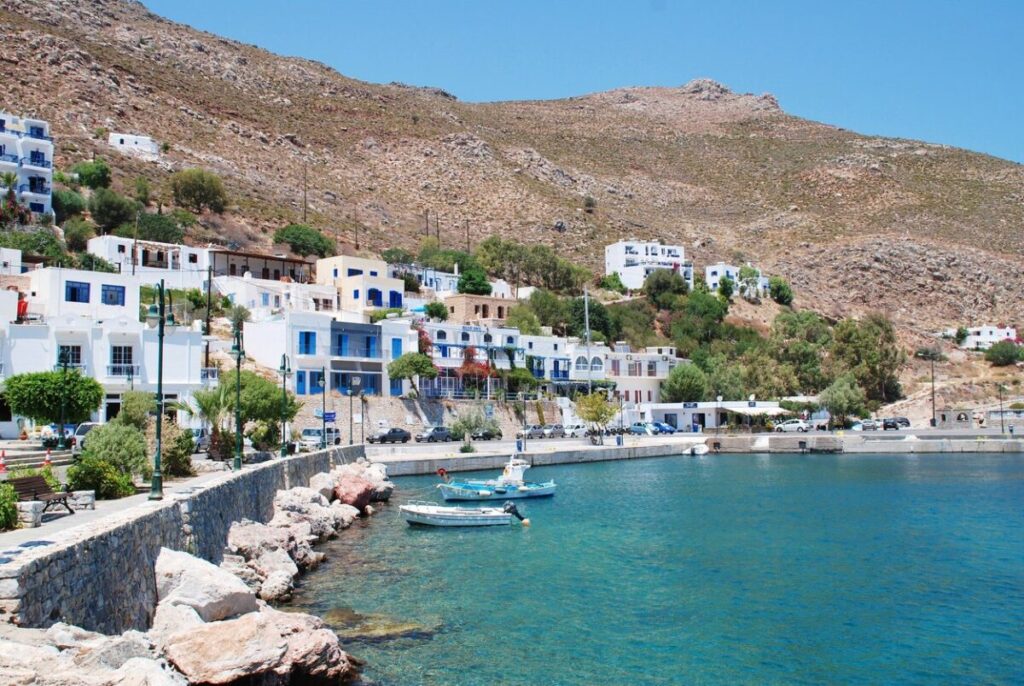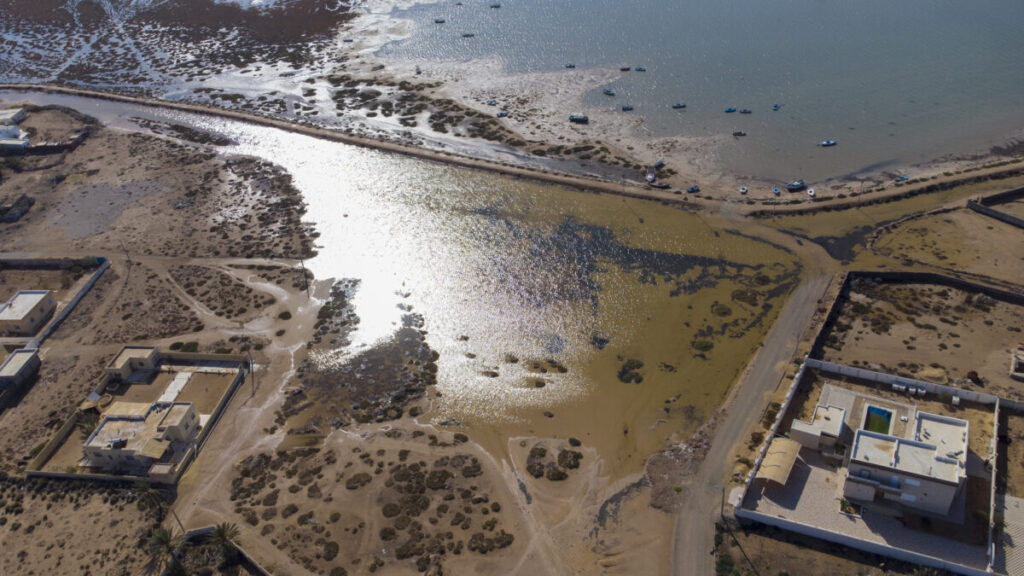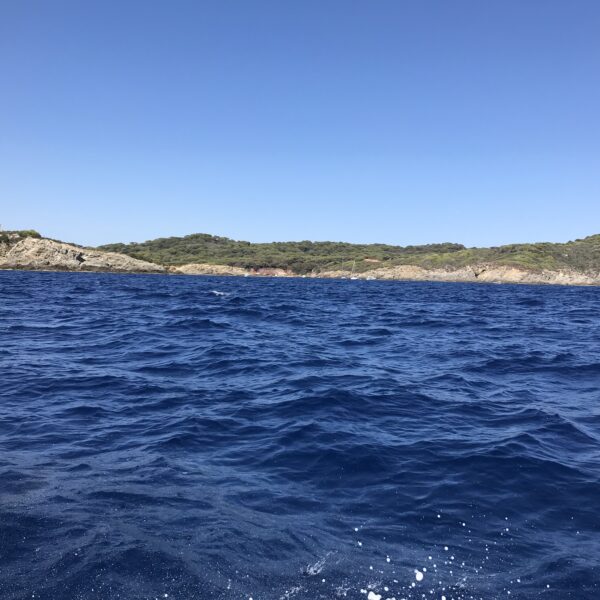In the changing light of the Mediterranean, the islands appear as sentinels. Sharply subjected to climate upheavals, they embody both the fragility of ecosystems and the strength of local innovation. While some already see their shores eroded by the sea, others are reinventing themselves as pioneers of sustainability. These contrasts offer a striking reading of the future of the Mediterranean basin.
This article is a summary of 5 articles dedicated to the fragility of Mediterranean islands and published in 22-med, available in the 11 languages used on the site.
The “best small town in the world” is in Cyprus: Andri Kounnou - Cyprus
Tilos, The first “green” island in the Mediterranean: Kelly Fanarioti - Greece
The islands are mobilizing to better manage their waste: Agathe Perrier - France
Rising waters threaten Djerba and Kerkennah: Lilia Blaise - Tunisia
The tropicalization of waters threatens the islands: Kelly Fanarioti - Greece
From one shore to another, the Mediterranean islands sketch a contrasting geography made of vulnerable territories, but also experimental grounds. They concentrate the shocks of climate change and tourist pressure, while revealing pathways for more sustainable tomorrows. Changing cities, inventive communities, or villages threatened by the sea reflect a striking image of what the future of the Mediterranean basin could be.
Paphos, the rebirth of a small island town

In Cyprus, the city of Paphos illustrates how a territory can be reborn through bold governance. Once burdened by municipal corruption, it managed to secure European funding to transform its urban space. Green spaces, modernized public transport, inclusive pedestrian areas: the city of 70,000 inhabitants has risen to the rank of “best small town in the world”.
But the transformation has not been limited to infrastructure. Paphos has established an autonomous LoRaWAN digital network, facilitating daily life through smart parking services, public lighting, and water management. The city now dreams of being the “capital of smart tourism,” with a focus on accessibility and environmental protection. Its dynamism attracts new residents and investors, while its cultural heart beats through citizen initiatives like Technopolis 20, an artistic center born from the commitment of two young women.
Tilos, the island that says no to oil
The Greek island of Tilos (899 inhabitants), on the other hand, has charted an even more radical path: that of energy autonomy. Thanks to the European Horizon 2020 program, it has equipped itself with a hybrid system combining wind turbines, solar panels, and storage batteries. Since 2018, the island has almost completely covered its needs and even exports its surplus electricity in winter to its neighbors, Kos and Nisyros.

The energy revolution has been followed by another, equally symbolic: zero waste management. Since 2023, the Just Go Zero program has eliminated landfills. Plastics, clothing, electronic devices are collected, sorted, transformed, while organic waste is composted and redistributed to residents. Result: 97.3% recycling. A model of circular economy driven by Mayor Maria Kammas-Aliiferi, who summarizes her credo in one phrase: “A healthy natural environment is a fundamental human right.”
Smilo, the network of small islands
Initiatives are not limited to national borders. Since 2016, the NGO Smilo has been supporting around sixty islands in the Mediterranean and beyond, facing the difficulty of managing their waste and resources. On the island of Levant, off the Var coast, it facilitated the installation of a plant shredder, reducing costly transport and providing compost to residents. On Saint-Honorat, off Cannes, the removal of public bins now forces visitors to take their waste back with them, reducing their volume by 30%.
The network has also enabled the launch of innovative projects in Cape Verde, where organic waste is transformed into biogas, or in Tunisia, with the recycling of fishing nets from Kerkennah. Smilo is no longer limited to waste issues: it also acts on water, energy, and biodiversity, awarding a “sustainable island” label to exemplary territories. “Even in the face of complex situations, there are always small things to implement,” reminds its president Maxime Prodromides.
Tunisia: Djerba and Kerkennah, the first climate displaced?
Not all islands have the chance to reinvent themselves. In Tunisia, Djerba and Kerkennah are already suffering the effects of rising waters. The soils are flooding, the sebkhas (saline depressions in the soil) that were once seasonal remain submerged all year round, and agricultural lands are salinized. Some residents of Kerkennah have had to leave their flooded homes to move to the city of Sfax. Researchers now refer to them as “the first climate displaced.”

Traditional ecosystems are also fragile. The fisheries of Kerkennah, listed as UNESCO intangible heritage, are declining, just like the coastal palm groves. The youth hesitate to take up fishing or farming professions, uncertain about the future of resources. Researchers are calling for the development of sustainable tourism, the restoration of palm groves, and the protection of sensitive areas. But for now, responses remain limited to a few dikes and local studies.
The Greek islands facing the tropicalization of the sea
In Lesbos and the Aegean archipelago, another phenomenon is disrupting the balances: the tropicalization of the Mediterranean. With an average increase of 2 °C, the waters attract exotic species that have arrived via the Suez Canal. Some are harmless, while others are devastating. The highly toxic sunfish destroys fishermen's nets. The Rhopilema nomadica jellyfish proliferate, frightening bathers and disrupting tourism. The rabbitfish devour the seagrass meadows, pillars of marine biodiversity.
The beaches are not spared. According to scientific estimates, many of them could lose half of their surface by 2100. The beach of Eressos, once emblematic of Lesbos, illustrates these upheavals: between rising waters, more violent storms, and poorly planned constructions, it has regressed dramatically. Here again, the combination of climate and human pressures jeopardizes a vital natural heritage for the Mediterranean.
Laboratories for the Mediterranean
The stories of Paphos, Tilos, Djerba, Kerkennah, or Lesbos compose a contrasting mosaic. The islands reveal the fragilities of the Mediterranean basin in the face of global warming, but they also demonstrate that solutions are possible. Their initiatives, whether technological, cultural, or social, are so many laboratories whose experiences can inspire the continent. The insular Mediterranean, on the front lines, thus sketches paths of adaptation that no one can ignore.

Cover photo: the island of Porquerolles, in France, is managed 75% by the Port-Cros National Park which ensures its protection © 22-med
